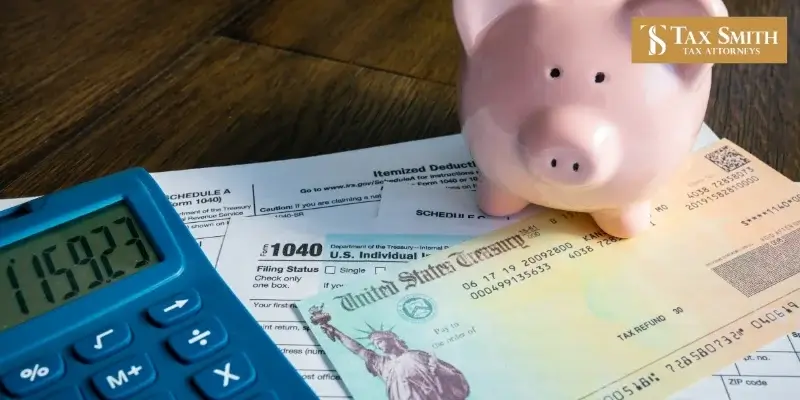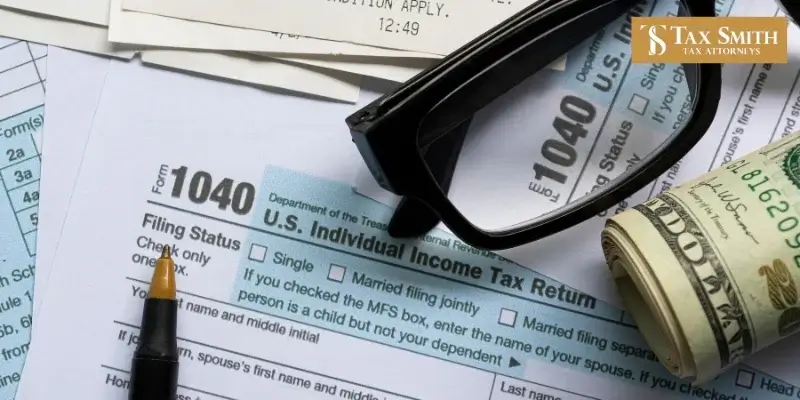1548 The Greens Way – Ste. 4 Jacksonville Beach FL 32250
Palm Beach Bank Levy Lawyer
Palm Beach Bank Levy Attorney
Creditors, including the Internal Revenue Service (IRS), have several methods for collecting unpaid debt, including placing a levy on your bank account. If you have received notice of a bank levy or your account has already been frozen, it is essential that you work with a Palm Beach bank levy lawyer.
A levy on your bank account can prevent you from accessing your finances as well as paying for basic necessities and bills. If the levy is not addressed, you can face even more financial hardship when the funds are removed from your account. Addressing your tax debt is crucial for avoiding severe penalties, like levies, and putting yourself in good standing with the IRS.
In FY 2023, more than 271 million tax returns and other forms were filed in the country, and 21 million of those were in Florida. Florida’s internal revenue collections were more than $310 billion. While many people keep up on their tax obligations, any number of emergencies and unexpected situations can lead to someone missing a return or payment.

If this debt is not addressed or paid back, the financial issues associated with the liability will only grow. It’s important to manage your tax debt sooner rather than later, so act quickly if you have received notice of a levy.
Protect Your Finances in Palm Beach With TaxSmith, LLC
At TaxSmith, LLC, we can help you address your state and federal tax debt in Plam Beach. If you cannot pay back the entire debt without putting yourself in financial hardship, there are options for negotiation. Our firm has decades of experience in tax laws at the local, state, and federal levels. We can represent you when dealing with the IRS, helping you find the right method to address your tax debt and avoid a levy. This could include an installment agreement or an offer in compromise.
Understanding Bank Levies
When you owe taxes and have not paid them, penalties and interest on your liability will continue to grow. The IRS assessed nearly $45 billion in civil penalties for individual, estate, and trust income taxes in fiscal year 2023. If your debt reaches a significant amount and you have failed to get in contact with the IRS or respond to its notices, you may face more serious collection actions.
One of these is a bank levy. While many creditors require court approval to put a levy on your bank account, the IRS doesn’t require this. It will send you a notice of the levy. Then, after 30 days, it will freeze your account. If you do nothing about a bank levy after 21 days, the IRS will take the entirety of your tax liability, penalties, and interest from your account.
While a bank levy is very serious, you have options. You could negotiate with the IRS and secure an alternate method of repaying your tax debt. The Taxpayer Assistance Center Office near Palm Beach is located in West Palm Beach, at 625 N. Flagler Drive. A debt settlement attorney in Palm Beach, FL can negotiate your case and explain what steps to take.
Steps the IRS Takes to Implement a Bank Levy
Generally, the IRS must do the following before placing a bank levy:
- The tax was assessed, and you were sent a tax bill.
- You did not pay the tax, either from neglect or refusal.
- The IRS sent a Final Notice of Intent to Levy as well as a Notice of Your Right to a Hearing.
- The IRS contacted third parties, such as a bank, after sending you a Notification of Third-Party Contact.
The levy is placed 30 days after the IRS sends out the Notice of Intent to Levy. During this time, you should act quickly to get legal counsel and begin negotiations with the IRS. If you don’t, the levy will go into effect. During the period your account is frozen, you must take action if you haven’t already. It is also possible to recover the funds after they have been taken by the IRS, but it can be more complex.

FAQs About Palm Beach, FL Bank Levy Law
How Do You Fight a Levy on Your Bank Account?
The most effective way to fight a levy on your bank account is to pay off the entire debt that you owe to the creditor who placed the levy. Then, the creditor will release the levy. If you cannot financially pay off the debt in full, you could negotiate other options with the creditor. If the levy was placed by the IRS, you may have several options for repayment. An attorney can explore these options and determine which one may work for you.
What Happens If You Don’t Pay a Levy?
If you don’t pay the debt that led to the levy or contact the creditor, then your bank account will be frozen soon after you receive the notice of the levy, and the funds will be removed from your bank account shortly after that. Depending on your financial situation and the size of your debt, this may be all the money in your bank account. If this does not cover the debt, other accounts could be levied.
Can I Open a New Bank Account If I Have a Levy?
You could open a new bank account if one account has a levy on it. However, this new account would likely be subjected to another levy if the creditor is made aware of it and your existing bank account does not cover the entire debt you owe. It’s better to address the issue of your debt, such as by paying it off, negotiating a payment plan, considering bankruptcy, and talking through these options with an experienced attorney.
What Is Worse, a Levy or a Lien?
Both levies and liens are serious collection actions taken by creditors, but many people consider a levy to be worse because it involves the actual seizure of your finances. A lien, in contrast, is a claim on your property, such as real estate, that doesn’t immediately result in the seizure of that asset. However, a lien may be considered worse because it is more likely to affect your credit score. Both levies and liens should be addressed quickly.
Finding the Right IRS Tax Attorney in Palm Beach
The team at TaxSmith, LLC, can help you address your tax liability and any IRS collection actions you face. There are several potential options for negotiating your tax debt, and our firm can determine what is right for your personal and financial situation. Contact us today.
Locations We Serve
- Alabama
- Arizona
- California
- Colorado
- Connecticut
- Delaware
- District of Columbia
- Florida – HQ
- Georgia
- Idaho
- Illinois
- Indiana
REQUEST A CONSULTATION
Please fill out the Contact Request Form and a Tax Attorney/Paralegal will call you
to discuss legal representation or to schedule your free initial consultation





